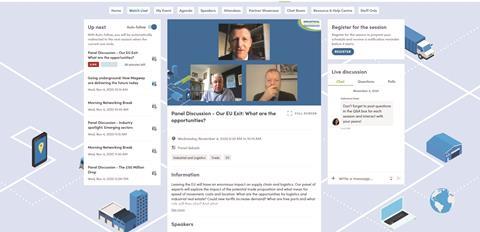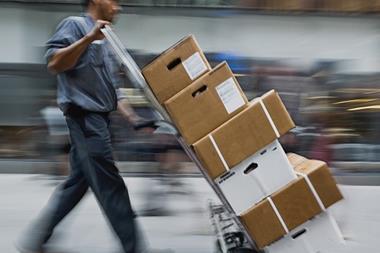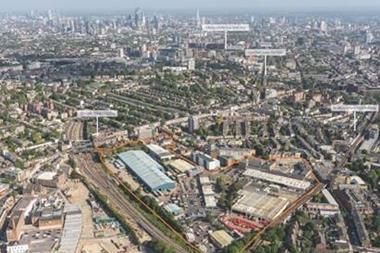It has been a bumper year for the industrial & logistics sector. Despite the Covid-19 pandemic, the UK’s worst-ever recession and ongoing uncertainty over Brexit, this year has seen the industrial sector’s highest-recorded level of take-up and its biggest investment deal – Blackstone’s £473m acquisition of Prologis’s Platform portfolio.

So, it is no surprise that there was a lot to talk about at Property Week’s Industrial & Logistics Conference & Showcase last week. Here are four key takeaways from the event.
Brexit uncertainty
Brexit has been somewhat sidelined by Covid-19 but the consensus was that this is the number one challenge facing the sector at the moment.
There are just weeks left until businesses have to adjust to a new set of trading rules and agreements with mainland partners. If there is no trade deal in place, the UK automatically falls back on World Trade Organisation rules.
UK Warehousing Association chief executive Peter Ward warned that the industrial and logistics sector was not as prepared for Brexit as it could be, with Covid-19 and uncertainty over talks with the EU distracting companies from preparing for a no-deal scenario.
Alan Braithwaite, chairman of Freight and Logistics Policy Group, added that Brexit had “without a doubt been the biggest disruptor” to the supply chain. This view was backed up by an audience poll at the event. When asked what would cause the greatest disruption to the supply chain, 83% said Brexit, 13% said Covid-19 and just 4% said the climate crisis.
Climate crisis
The climate crisis may not have been front of mind for delegates, but it was for keynote speaker Lord Deben, who as we reported last week, had a stark warning for the sector. “If you build buildings that are not set to be carbon-neutral, they will be increasingly difficult to let because businesses that want to lease buildings will be under pressure, not just from the government but from their investors,” he said, throwing down the gauntlet to the industry.
Amazon’s automation spend
Another big talking point was automation. It comes as no surprise that Amazon, which accounted for 84% of ecommerce take-up according to Savills’ data from July, is investing heavily in artificial intelligence (AI) and automation. What is surprising is the sheer amount it is spending on it.
“Amazon’s research budget is half the research budget of the UK,” said Calum Chace, writer and speaker on AI. “By that I mean that out of all the UK’s companies, government agencies and universities, Amazon spends half that. It spends quite a lot of it on AI and a reasonable amount of it on automating its factories.”
He added: “Amazon is racing to automate the last few tasks that humans do in their warehouses. But this is camouflaged by the fact that they are hiring crazily.”
Emerging subsectors
While ecommerce was a major focus at this year’s conference, light was also shed on some of the emerging subsectors.
The first was vertical farming, which Patrick Harte, head of commercial at CambridgeHOK, said had become much more common in the past few years.
“The main reason for the increasing popularity of vertical farms in the UK is the development of LED lighting,” he said. “This has improved the efficiency of turning electricity into light and means that the cost is much cheaper.”
Ben Fawcett, global head of real estate at Deliveroo, described how the pandemic had changed eating habits in the UK and led to the rise of food operators taking warehouse space for ‘dark kitchens’.
“People are moving from having a takeaway once or twice a week to two or three times a day in some cases,” he said, adding that Deliveroo planned to double its property portfolio by the end of 2021.






























No comments yet